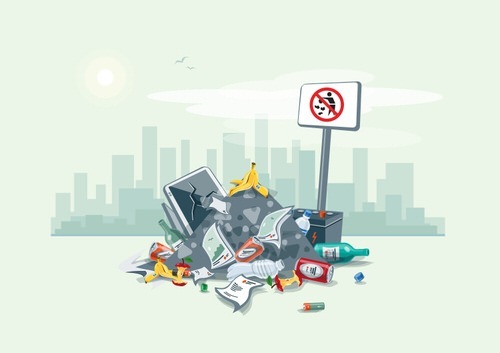California Penal Code § 374.3 PC defines the crime commonly referred to as illegal dumping. This section prohibits the unauthorized disposal of garbage, waste, and other matter on public or private property.
Examples
- After a full day of trimming trees and bushes, Terry’s Landscape Company discards the debris upon a public park;
- Kyle and his friends throw empty beer bottles on his neighbor’s lawn without the neighbor’s consent; and,
- In paving a nearby street, Black Top LLC throws a few buckets of stone upon a private roadway.
Penalties
Illegally dumping matter in violation of 374.3 PC is an infraction. The offense is punishable by a fine. The amount of the fine ranges from $250 to more than $3,000, depending on the number of times you commit the offense.
Defenses
Luckily, there are several legal defenses available. These include showing that you acted:
- With consent;
- Under duress; and/or,
- By necessity.
Our California criminal defense attorneys will highlight the following in this article:
- 1. When is illegal dumping a crime in California?
- 2. How can I fight the charges?
- 3. What are the Penal Code 347.3 penalties?
- 4. Related Offenses

California Penal Code 374.3 PC is the California statute that defines the crime of “illegal dumping.” Under this code section, illegal dumping is the disposing of garbage, waste and other matter on public or private property.
1. When is illegal dumping a crime in California?
California Penal Code 374.3(a) makes it a crime to dump “waste matter” under four circumstances. These are when it is dumped:
- Upon a public or private road or highway, including any portion of a right-of-way;
- In or upon private property that is accessible to the public by easement or license;
- Upon private property without the owner’s consent; and,
- In or upon a public park or other public property, other than property designated for the purpose of dumping garbage.1
Under PC 374.3(b), it is also a crime to place, deposit, or dump the following matter on any of the property noted above:
- Rocks,
- Concrete,
- Asphalt, and
- Dirt.2
Penal Code 374(b) defines “waste matter” as:
discarded, used, or left-over substance including, but not limited to, a lighted or nonlighted cigarette, cigar, match, or any flaming or glowing material, or any garbage, trash, refuse, paper, container, packaging or construction material, carcass of a dead animal, any nauseous or offensive matter of any kind, or any object likely to injure any person or create a traffic hazard.3
2. How can I fight the charges?
If you are accused of illegal dumping, per PC 374.3, you may challenge the accusation by raising a legal defense. A good defense can often get a Penal Code 374.3 charge reduced or even dismissed. Please note, though, that is critical to hire an attorney to raise a defense on your behalf.
Three common defenses to PC 374.3 accusations are:
- Consent,
- Duress, and
- Necessity.
2.1. Consent
This is a defense against the dumping of waste on private property. Recall that this is a crime only if you dump the garbage without the consent of the property owner. Therefore, it is a valid legal defense to show that you dumped the matter in question only after first gaining the property owner’s consent.
2.2. Duress
Duress is a somewhat common legal defense in which you basically say: “He made me do it.” In asserting the defense, though, you have to show that you performed an act because you believed your life was in immediate danger if you did not commit the act.
In other words, the defense applies in situations where you commit a crime (such as dumping illegally) because somebody threatened to kill you if the crime was not committed.
2.3. Necessity
Under a necessity defense, you essentially try to avoid guilt by showing that you had a sufficiently good reason to commit the crime.4 People sometimes refer to this defense as “guilty with an explanation.”
In the context of discarding garbage illegally, you could attempt to show that you committed the crime since you had no other choice (for example, because of an emergency).

If you are accused of illegal dumping, per PC 374.3, you may challenge the accusation by raising a legal defense.
3. What are the Penal Code 347.3 penalties?
Violating Penal Code 374.3 is an infraction.5
The penalty for committing this crime is a fine. The amount of the fine will depend on the number of times you dump illegally.
This means the fine is:
- Between $250 and $1,000 for a first offense;
- Between $500 and $1,500 for a second offense; and,
- Between $750 and $3,000 (or more) for a third offense.6
Please note that, Per PC 374.3, a separate violation occurs for every day that the waste or other matter remains dumped illegally.7
Also, note that the above fines will double if the garbage that was dumped includes used tires.8
4. Related Offenses
There are three crimes related to Penal Code 374.3 PC. These are:
- Illegally Dumping “Commercial Quantities” – Penal Code 374.3(h)(1)
- Vandalism – Penal Code 594; and,
- Trespassing – Penal Code 602.
4.1. Illegally Dumping “Commercial Quantities” – Penal Code 374.3(h)(1)
California Penal Code 374.3(h)(1) imposes the same laws discussed above, but in the specific context of dumping “commercial quantities.”
Penal Code 374.3(h)(2) defines “commercial quantities” as:
an amount of waste matter generated in the course of a trade, business, profession, or occupation, or an amount equal to or in excess of one cubic yard.9
The illegal dumping in commercial quantities is a California misdemeanor. The penalties can include up to six months in jail and a fine in the following amount:
- Between $1,000 and $3,000 for a first offense;
- Between $3,000 and $6,000 for a second offense; and,
- Between $6,000 and $10,000 for a third offense.10
4.2. Involuntary Manslaughter – Penal Code 192(b)
California Penal Code 192(b) PC makes it a crime in California to commit involuntary manslaughter.
Involuntary manslaughter occurs when you kill another person unintentionally, either
- While committing a crime that is not an inherently dangerous felony; or,
- While committing a lawful act that might produce death, without due caution.11
Under Penal Code 192(b), a key feature of California’s involuntary manslaughter law is that it does not require intent to kill another person—unlike Penal Code 187 murder, which requires “malice aforethought.”12
Please note that California’s involuntary manslaughter law does not include actions that fit the above definition but involve a car. Those will be charged under California’s vehicular manslaughter laws.13
Involuntary manslaughter is a felony under California law. Possible penalties include:
- Two, three, or four years in jail; or,
- A fine of up to $10,000.14
4.3. Trespassing – Penal Code 602
California Penal Code 602 PC prohibits the crime known as criminal trespass. You commit this crime when you:
- Enter, or remain on, someone else’s property; and,
- Do so without permission or a right to do so.15
In most cases, California trespass is a misdemeanor punishable by:
- Up to six months in county jail; and/or,
- A fine of up to $1,000.16
However, certain kinds of trespass in California may lead only to infraction charges, with penalties consisting of only a small fine.17
“Aggravated trespass” is a felony charge and carries a jail sentence of:
- 16 months;
- Two years; or,
- Three years.
“Aggravated trespass” is when you:
- Threaten to injure someone; and then,
- Enter their home or workplace without permission.18
Legal References:
- California Penal Code 374.3(a) PC.
- California Penal Code 374.3(b) PC.
- California Penal Code 374(b) PC.
- See, for example, Judicial Council of California Criminal Jury Instructions (“CALCRIM”) 3403.
- California Penal Code 374.3(c) PC.
- California Penal Code 374.3(e) PC.
- California Penal Code 374.3(c) PC.
- California Penal Code 374.3(e) PC.
- California Penal Code 374.3(h)(2) PC.
- California Penal Code 374.3(h)(1) PC.
- California Penal Code 192(b) PC.
- California Penal Code 187 PC – Murder [contrast with the definition of involuntary manslaughter]. (“(a) Murder is the unlawful killing of a human being, or a fetus, with malice aforethought.”)
- California Penal Code 192(c) PC.
- California Penal Code 193 PC.
- California Penal Code 602 PC.
- See same.
- California Penal Code 602.8 PC.
- California Penal Code 601 PC.
